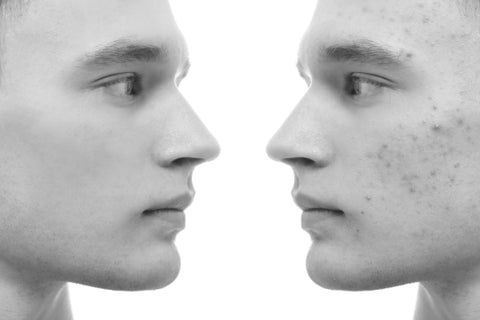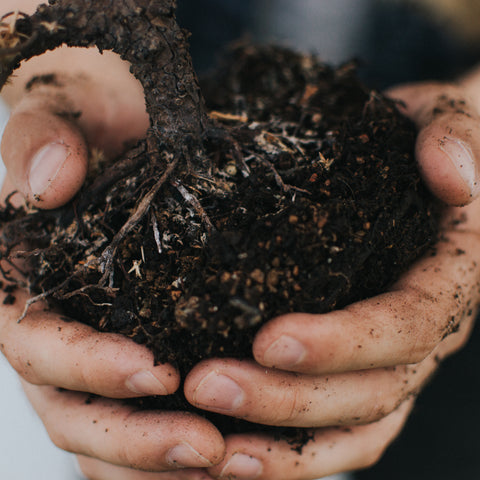Skin Microbiome - Learn More
YOU AND WHOSE ARMY?
Your skin microbiome is tiny but powerful. And, if you want to scrub up well, it’s about time you showed it some respect.

You might think that Avengers Infinity War is the ultimate expression of superhero super powers. But allow us to introduce to you a way more impressive cast of characters than Thor, or Loki, or even Star-Lord.
Imagine if you had your own private army of superheroes - battling for you night and day. Now imagine if they were invisible, and that there was over 1000 different regiments - all fighting for the same cause.
Welcome to the weird, wonderful and totally not CGI world of your skin microbiome.
Where our bodies meet the outside world, our skin is a slender barrier keeping our insides safe, and stopping the invasion of foreign nasties from breaching our defences. Our skin is, quite simply, on the front line. 24/7.
So what’s protecting our skin? Our microbiome. And it’s an army you’re really going to have to start being nice to.
Because, right now, a war is being raged on your body. Good guy bacteria are fighting bad guy bacteria. Fungi on fungi. Virus on virus. Honestly, it’s lethal down at the microscopic level.
Actually, although our skin’s kinda great, it’s actually a pretty harsh environment to live on. It’s quite dry, nutrient-poor, acidic and battered by the elements daily. And yet microbial communities of millions are doing their thing. Keeping skin free from infection, keeping our moisture levels optimal, and scavenging away all that dead skin and dirt.
But it does more than that. Recent studies show the skin’s microbiome aids in wound healing, limits exposure to allergens (shout out to all you psoriasis and eczema sufferers) and ageing UV radiation. It minimizes oxidative damage and helps to keep the skin barrier intact too.

But here’s the rub. Excess use of antimicrobial hand sanitizers, soaps and cleansers imbalance and even kill our microbiome, which can lead to poor skin health and even contact dermatitis, acne, poor wound healing, skin ulcers, dandruff, yeast and fungal infections, rosacea, and accelerated skin aging. Hands up who wants that?
So if you’re addicted to clean you could be damaging your skin microbiome.
Take soap, for example. It’s alkalinizing - it has a pH of around 10. But our skin microbiome prefers a pH of about 5. At this relatively acidic pH, the healthy microbiome thrives. So think about swapping harsh cleaners for ones that respect the skin’s army of silent helpers (hint, like Urban Jack’s naturally-derived Face Wash, which uses a blend of essential oils, and zero harsh nasties).
But there are a few other ways to keep your skin’s microbiome healthy and happy - and, as a result, do all you can to keep your skin healthy too.
Get dirty
It might sound counter-productive, but we’re all way too clean. We just don’t get our hands dirty enough. Think about working in the garden, getting out and about in nature more. The more contact we have with the real, natural, unfiltered world the better. Interacting with it exposes us to beneficial colonies of microorganisms. Sure, wash your hands when they’re filthy, but don’t fret about finding an antibacterial wash every time you hug a tree.

Get sweaty
There is some evidence to show that sweat feeds healthy skin bacteria and acts like a prebiotic, topping up the microbiome’s energy reserves. So exercise, take a sauna, or, erm, do anything else that gets you all hot and bothered;sweating (through exercise or sauna use), this one is an easy thing to add with a lot of other benefits as well.
Think about a skin prebiotic
We take them for our gut microbiome, so why not for our face? Probiotic face masks made with yoghurt can give your skin’s invisible army a good, nourishing feed - just don’t use one with chunks of fruit in. You’ll look ridiculous.
Eat and drink!
We’ve heard it a million times, but how many of us really eat healthy, fresh, unprocessed food as often as we should? Think about introducing as many ‘colours’ to your diet as you can: green broccoli, blueberries, colourful vegetables, and drink plenty of clean water. Lay off too much caffeine too, and watch out for that excess sugar.


